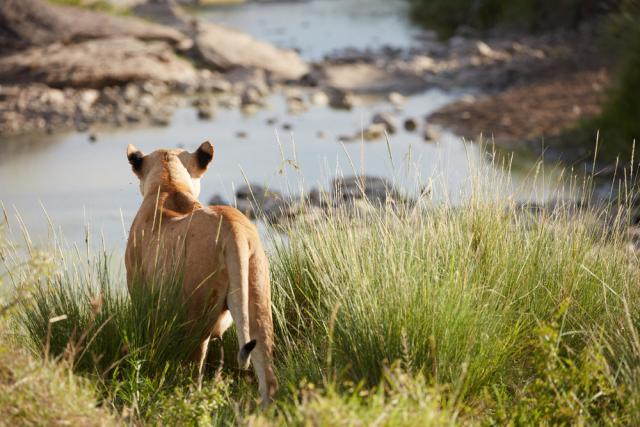
The problem
African lion numbers have declined by over 40% in just three generations.
The main threats to lions are:
- retaliatory killing to protect human life and livestock (usually by poisoning livestock/animal carcasses that lions then eat)
- decreasing natural prey (due partly to loss of habitat and livestock taking over the grazing areas of natural prey).
When their natural prey is scarce, lions can cause grave losses to livestock, a primary source of household income for local people.
Cheap, readily available poison is widely used and as a result, entire lion prides have been wiped out.
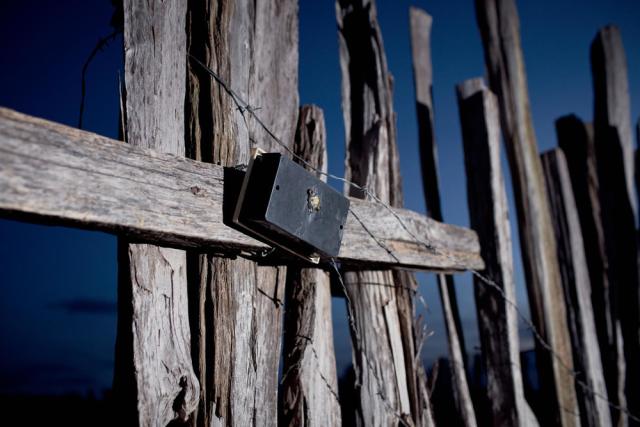
The solution
We’re working at a landscape level to solve the bigger problem of habitat/prey loss and supporting people – we’re supporting community ‘conservancies’, protected areas and further studies (e.g. national lion census in Kenya). Conservancies are a good conservation tool – they're areas of community managed land, where wildlife can thrive and landowners gain financial benefits (e.g. by restricting grazing in certain areas, thereby attracting other wildlife/predators, tourist operators pay a fee to landowners to access these areas).
On top of that we’re providing ‘Predator Deterrent Lights’ for bomas (livestock enclosures to keep animals safe at night, when most predation occurs). Predator Deterrent Lights are a series of solar powered, flashing LED lights that deter predators, including lions, because the lights appear like people moving.
Solar powered lights are especially useful as many communities have no access to grid power.
As part of the Predator Deterrent Lights project, we also provide other solar lighting which can be used inside homes (the same solar panel can power a main lightbulb). This is good for people’s attitudes, but also their health as less paraffin is used to light homes, and children can study at night.
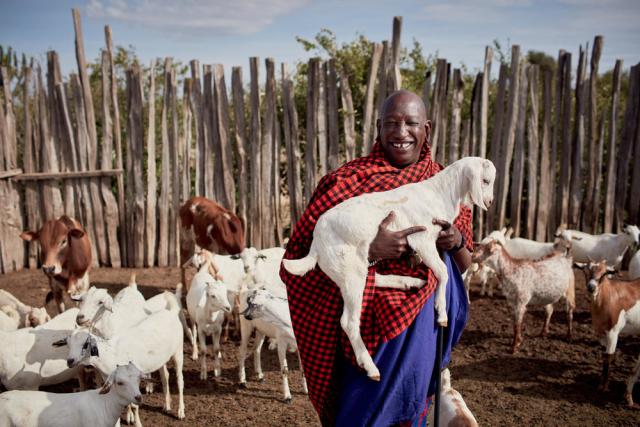
Who it benefits
Local people, particularly pastoralists (a sheep or cattle farmer).
John, a Narok County pastoralist who uses Predator Deterrent Lights believes the Predator Deterrent Lights “solved the problem at night-time.” He’s had the lights for 1.5 years and not had a single loss in that time.
Prior to installing the lights, he had many losses - almost every night during the rainy season there was an incident.
Results
Homesteads with the lights have experienced zero predation and this has resulted in improved livelihoods and HWC mitigation.
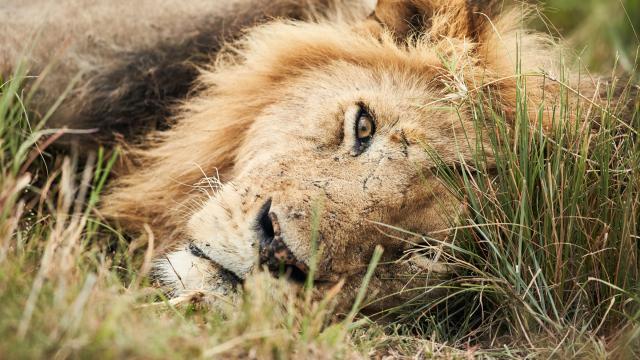
 Learn about beekeeping for elephants
Learn about beekeeping for elephants
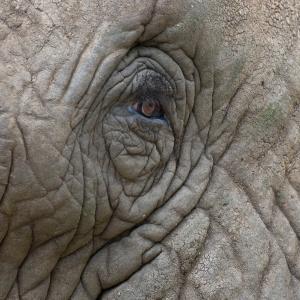 African elephant: strong, smart, but vulnerable
African elephant: strong, smart, but vulnerable